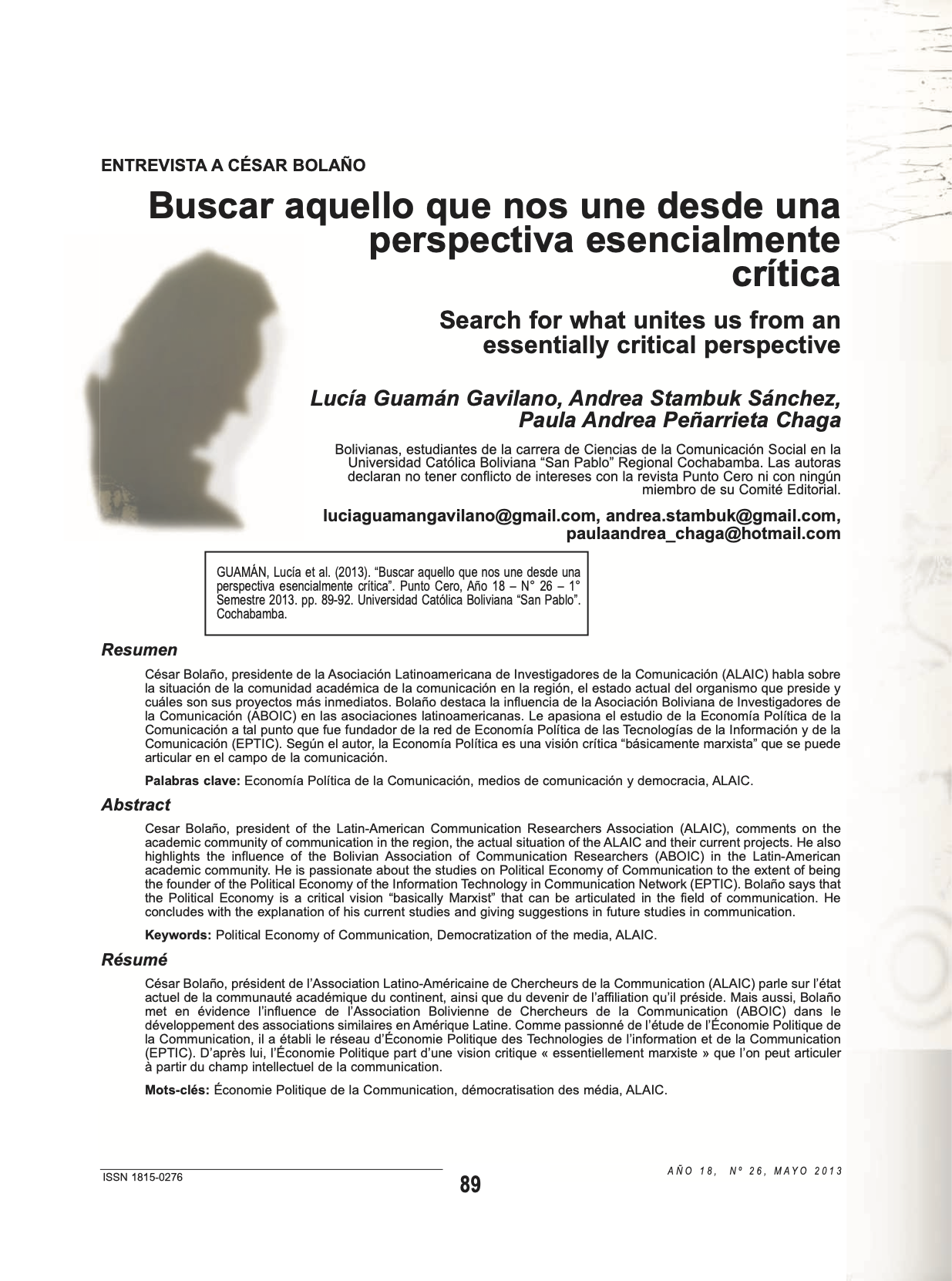Search for what unites us from an essentially critical perspective
DOI:
https://doi.org/10.35319/puntocero.201326148Keywords:
Political Economy of Communication, Democratization of the Media, ALAICAbstract
Cesar Bolaño, president of the Latin-American Communication Researchers Association (ALAIC), comments on the academic community of communication in the region, the actual situation of the ALAIC and their current projects. He also highlights the influence of the Bolivian Association of Communication Researchers (ABOIC) in the Latin-American academic community. He is passionate about the studies on Political Economy of Communication to the extent of being the founder of the Political Economy of the Information Technology in Communication Network (EPTIC). Bolaño says that the Political Economy is a critical vision “basically Marxist” that can be articulated in the field of communication. He concludes with the explanation of his current studies and giving suggestions in future studies in communication.

Downloads
Published
How to Cite
Issue
Section
License
Copyright (c) 2013 Revista Punto Cero

This work is licensed under a Creative Commons Attribution-NonCommercial 4.0 International License.








